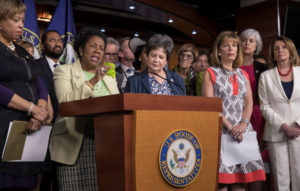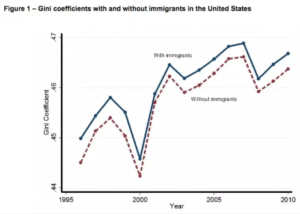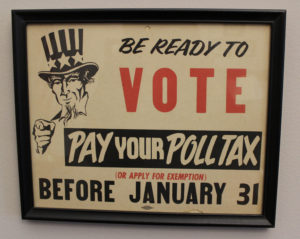WASHINGTON — President Trump lashed out Thursday at the appearance and intellect of Mika Brzezinski, a co-host of MSNBC’s “Morning Joe,” drawing condemnation from his fellow Republicans and reigniting the controversy over his attitudes toward women that nearly derailed his candidacy last year.

Mika Brzezinski in Trump Tower in November. Credit Evan Vucci/Associated Press. Image: https://static01.nyt.com/images/2017/06/30/business/30trumpmedia1/30trumpmedia1-master768-v2.jpg
Mr. Trump’s invective threatened to further erode his support from Republican women and independents, both among voters and on Capitol Hill, where he needs negotiating leverage for the stalled Senate health care bill.
The president described Ms. Brzezinski as “low I.Q. Crazy Mika” and claimed in a series of Twitter posts that she had been “bleeding badly from a face-lift” during a social gathering at Mr. Trump’s resort in Florida around New Year’s Eve. The White House did not explain what had prompted the outburst, but a spokeswoman said Ms. Brzezinski deserved a rebuke because of her show’s harsh stance on Mr. Trump.
The tweets ended five months of relative silence from the president on the volatile subject of gender, reintroducing a political vulnerability: his history of demeaning women for their age, appearance and mental capacity.
“My first reaction was that this just has to stop, and I was disheartened because I had hoped the personal, ad hominem attacks had been left behind, that we were past that,” Senator Susan Collins, a moderate Republican from Maine who is a crucial holdout on the effort to repeal the Affordable Care Act, said in an interview.
“I don’t think it directly affects the negotiation on the health care bill, but it is undignified — it’s beneath a president of the United States and just so contrary to the way we expect a president to act,” she said. “People may say things during a campaign, but it’s different when you become a public servant. I don’t see it as undermining his ability to negotiate legislation, necessarily, but I see it as embarrassing to our country.”
A slew of Republicans echoed her sentiments. Senator Lisa Murkowski of Alaska, who, like Ms. Collins, holds a pivotal and undecided vote on the health care bill, tweeted: “Stop it! The presidential platform should be used for more than bringing people down.”
Senator Ben Sasse, a Nebraska Republican who opposed Mr. Trump’s nomination during the presidential primaries, also implored him to stop, writing on Twitter that making such comments “isn’t normal and it’s beneath the dignity of your office.”
Senator James Lankford, Republican of Oklahoma, added, “The president’s tweets today don’t help our political or national discourse and do not provide a positive role model for our national dialogue.”
Ms. Brzezinski responded by posting on Twitter a photograph of a box of Cheerios with the words “Made for Little Hands,” a reference to a longstanding insult about the size of the president’s hands. MSNBC said in a statement, “It’s a sad day for America when the president spends his time bullying, lying and spewing petty personal attacks instead of doing his job.”
Mr. Trump’s attack injected even more negativity into a capital marinating in partisanship and reminded weary Republicans of a political fact they would rather forget: Mr. Trump has a problem with the half of the population more likely to vote.

Representative Sheila Jackson Lee of Texas and others in the House criticized President Trump’s remarks on Thursday. Credit Stephen Crowley/The New York Times. Image: https://static01.nyt.com/images/2017/06/30/us/30dc-trumpwomen-3/30dc-trumpwomen-3-master675.jpg
Christine Matthews, a Republican pollster who specializes in the views of female voters, said the president’s use of Twitter to target a prominent woman was particularly striking, noting that he had used only one derogatory word — “psycho” — to describe the show’s other co-host, Joe Scarborough, and the remainder of his limited characters to hit upon damaging stereotypes of women.
“He included dumb, crazy, old, unattractive and desperate,” Ms. Matthews said.
“The continued tweeting, the fact that he is so outrageous, so unpresidential, is becoming a huge problem for him,” she added. “And it is particularly unhelpful in terms of building relationships with female Republican members of Congress, whose votes he needs for health care, tax reform and infrastructure.”
But it was unclear whether the vehemence of the president’s latest attack would embolden members of his party to turn disdain into defiance.
Senior Republicans, including Senator Mitch McConnell of Kentucky, the majority leader, cycled through what has become a familiar series of emotions and calculations after the Twitter posts, according to staff members: a flash of anger, reckoning of possible damage and, finally, a determination to push past the controversy to pursue their agenda.
“Obviously, I don’t see that as an appropriate comment,” the House speaker, Paul D. Ryan, said during a Capitol Hill news conference. Then he told reporters he wanted to talk about something else.
Representative Nancy Pelosi, the House Democratic leader, demanded an apology, calling the president’s Twitter posts “sexist, an assault on the freedom of the press and an insult to all women.”
A spokeswoman for the president, Sarah Huckabee Sanders, urged the news media to move on, arguing during the daily White House briefing that Mr. Trump was “fighting fire with fire” by attacking a longtime critic.
Ms. Brzezinski had called the president “a liar” and suggested he was “mentally ill,” added Ms. Sanders, who defended Mr. Trump’s tweets as appropriate for a president.
Melania Trump, the president’s wife — who has said that, as first lady, she will embark on a campaign against cyberbullying — also rejected claims that her husband had done what she is charged with undoing.
“As the first lady has stated publicly in the past, when her husband gets attacked, he will punch back 10 times harder,” Mrs. Trump’s spokeswoman wrote in a statement, referring to the first lady’s remarks during the campaign.
Current and former aides say that Mr. Trump was chastened by the furor over the “Access Hollywood” tape that emerged in October, which showed him bragging about forcing himself on women, and that he had exhibited self-restraint during the first few months of his administration. But in the past week, the sense that he had become the victim of a liberal media conspiracy against him loosened those tethers.
Moreover, Mr. Trump’s oldest friends say it is difficult for him to distinguish between large and small slights — or to recognize that his office comes with the expectation that he moderate his behavior.
And his fiercest, most savage responses have almost always been to what he has seen on television.
”Morning Joe,” once a friendly bastion on left-leaning MSNBC, has become a forum for fiery criticism of Mr. Trump. One adviser to the president accused the hosts of trying to “destroy” the administration over several months.
After lashing out at Mr. Scarborough and Ms. Brzezinski at one point last summer, Mr. Trump told an adviser, “It felt good.”
Even before he began his campaign two years ago, Mr. Trump showed a disregard for civility when he made critical remarks on television and on social media, particularly about women.
He took aim at the actress Kim Novak, a star of 1950s cinema, as she presented during the 2014 Academy Awards, taking note of her plastic surgeries. Chagrined, Ms. Novak later said she had gone home to Oregon and not left her house for days. She accused Mr. Trump of bullying her, and he later apologized.
As a candidate, Mr. Trump was insensitive to perceptions that he was making sexist statements, arguing that he had a right to defend himself, an assertion Ms. Sanders echoed on Thursday.
After the first primary debate, hosted by Fox News in August 2015, Mr. Trump trained his focus on the only female moderator, Megyn Kelly, who pressed him on his history of making derogatory comments about women.
He told a CNN host that Ms. Kelly had “blood coming out of her wherever,” leaving Republicans squeamish and many thinking he was suggesting that Ms. Kelly had been menstruating. He refused to apologize and kept up the attacks.
Later, he urged his millions of Twitter followers to watch a nonexistent graphic video of a former Miss Universe contestant, Alicia Machado, whose weight gain he had parlayed into a media spectacle while he was promoting the pageant.
Mr. Trump went on to describe female journalists as “crazy” and “neurotic” on his Twitter feed at various points during the race. He derided reporters covering his campaign, Katy Tur of NBC and Sara Murray of CNN, in terms he rarely used about men.
His tweets on Thursday added strain to the already combative daily briefing, as reporters interrupted Ms. Sanders’s defense of the president to ask how she felt about them as a woman and a mother.
She responded that she had only “one perfect role model”: God.
“None of us are perfect,” she said.
—
One of the reporters on this story, Glenn Thrush, has a contract for regular appearances on MSNBC.







